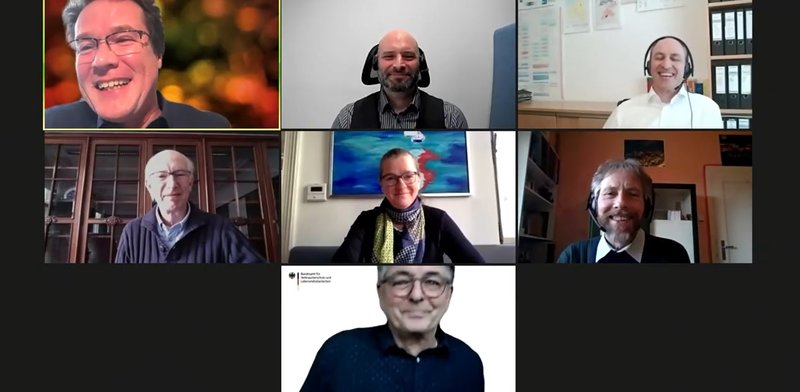News
BVL welcomes Cibus test: it's about the mutation, not its cause
"The cause of the point mutation is not the question of a detection" said Dr. Lutz Grohmann from the genetic engineering department of the BVL at the online expert discussion of the Green parliamentary group in the Bundestag on 24.02.2021. Grohmann thus explicitly agreed with the assessment of the GMO law expert lawyer Dr. Georg Buchholz, who had already made this aspect clear in a letter to the EU Commission on behalf of the VLOG in October 2020.
New insights at BVL: Cause of mutation does not need to be identified
This is a remarkable new insight, because the BVL and later also the European Network of GMO Laboratories (ENGL) had initially criticized that the new detection method could "only" identify the change in the genetic material, but not its cause – and was therefore not "court proof". This assessment has apparently changed. The BVL also no longer fundamentally questioned the fact that the Cibus canola lines for which the test was developed are "gene editing" GMOs
The decisive and, according to the BVL, difficult question was the clear identification of the mutation and its differentiation from other related plants with very similar mutations. Lawyer Buchholz, on the other hand, was of the opinion that even a sufficient suspicion – through a positive test result – obliges the authorities to take action. If the suspicion could not be dispelled by the manufacturer or importer, the product concerned should "not be allowed into the EU as suspicion not dispelled".
BVL has now thoroughly reviewed the new open-source detection method for Cibus canola and announced that it will present its findings on it in March.
What to search for? Reference material and international registers
Among others, Dr. Konstantin Rizos from the Foodchain ID test laboratory addressed the difficulty of obtaining reference material of such non-approved GM plants. The BVL also complained about the hardly existing willingness of seed companies to cooperate on this issue.
Because another challenge in detecting unapproved genetically modified organisms is that you first have to know what you are looking for – in other words, the mutations have to be known. Dr. Margret Engelhard of the German Federal Agency for Nature Conservation therefore called for the strengthening and expansion of international registers in which such information must be made publicly available.
Greens: Consumers do not want genetic engineering - detection methods overdue
Leader of the Green Bundestag fraction Anton Hofreiter highlighted the success of the "Ohne GenTechnik" label. Consumers reject genetic engineering in food, which is why regulation and detection procedures are necessary. His colleague Harald Ebner, genetic engineering expert of the parliamentary group, expressed his astonishment that the detection research was apparently only at the very beginning, although the new genetic engineering methods have already been used for several years. A lack of detection methods would mean the end of risk assessment and the possibility of labeling, Ebner said, asking "is the rule of law capitulating here?"
Background and further information
World's first open-source detection method for plant from new genetic engineering developed
Agriculture secretary welcomes first detection method for Cibus canola
Evaluation of Cibus canola detection based on false legal assumptions
Producer of "gene-edited" canola must provide reference material
Briefing „GMO Status of Cibus SU Canola”
Nano (3Sat): "Genome-edited or not?"

